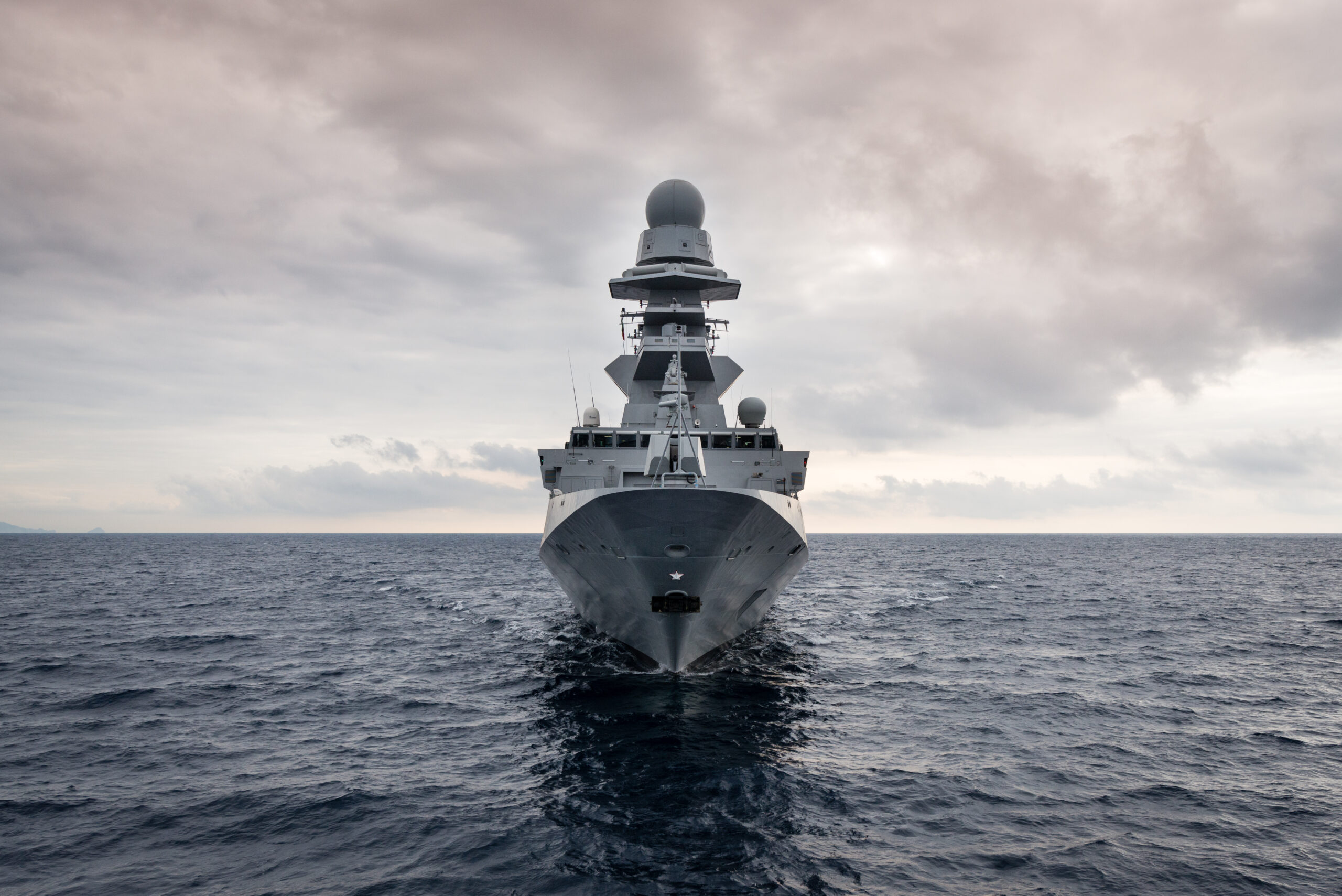Will Aukus cripple Fincantieri’s Fremm?

What will be the effects also for Fincantieri's Fremm with the US-Great Britain-Australia Aukus pact. The in-depth analysis by Alberto Negri, journalist and former special foreign correspondent to the Sole 24 Ore
The "anglosphere" also wipes out Fincantieri
Aukus. Skip the mega-order to Australia for nine 23 billion Fremm frigates. Canberra preferred the British proposal, even if the project is still only on paper. The US message is clear: there is no room for Europe in the Pacific
The "anglosphere", the US-Britain-Australia Aukus pact, has raised the ire of China and hit hard on France, which has withdrawn its ambassadors to Washington and Canberra. The French say they were kept in the dark about the cancellation of the 56 billion euro supply of nuclear submarines from Naval Gorup but in reality there had already been a wake-up call because at the beginning of the summer the Italians had also been screwed big by Australians.
And precisely on the maxi-supply of Fremm frigates to the Australian navy of the state-owned Fincantieri, a project in which the French of Naval Group are also partners. In short, the rip-off is double. An interesting story – silenced by the national media because nobody likes rip-offs – which reveals the level of competition between Europeans and the military-industrial complex of the "anglosphere" that with
the Aukus pact – NATO of the Pacific – launched by Biden-Johnson-Morrison wants to put China on the ropes.
This is how the largest Italian naval order of recent decades, the one to Australia, for nine frigates, a total value of about 23 billion euros, went up in June. The order was won by the British Bae Systems, overtaking two other competitors, Fincantieri and the Spanish Novantia. Thus, the dream of selling Italian ships that are actually born from an Italian-French collaboration was shattered.
It was a political rather than a technical choice and for this reason even more burning. From the comparison between the winning proposal and the Italian one, above all one aspect emerged: the English frigates are still in the planning phase and will only be available at the end of the next decade, while the Italian frigates are already operational and tested, which would have allowed the Australians to have the first ships in a few years. The Australians, therefore, bet on a ship that is valid on paper, rather than one that has already proved effective. A decision that cannot be justified on a technical and operational level.
The choice, in fact, had no technological justification: the Italian-French Fremm – underlines the Iai, the International Affairs Institute – are the most advanced units in service in the world. Not only that, Fincantieri had foreseen direct investments in Australia for the construction of the ships and a wide involvement of local suppliers.
In order to win this contract, the country system had spent more than ever. A specific cruise by a NavyFremm had been organized and a visit to Australia by a government delegation – military, diplomatic and industrial – culminating in the arrival of the defense minister and then the foreign minister.
In short, for Italy the loss of that Australian naval order, which now seemed to have been done, was a bitter disappointment. Beaten by an English frigate model that was only on paper. If it is true that in the naval field a choice is destined to condition national military plans for thirty years, it means that Italy (but in the case of frigates also France as a Fincantieri partner) was not considered reliable enough.
And in fact between Italian diplomats, military and industrialists a lively and poisoned discussion arose behind the scenes for the usual rebound of responsibilities, followed by a deafening silence so as not to amplify the failure too much. Disappoint and truncate, truncate and quench… in pure Manzoni's style. An obvious choice too, given that these Fremm frigates, which we have already sold to al-Sisi's Egypt and Qatar, Fincantieri would like to place them also in Saudi Arabia and Morocco.
The area of expansion and influence of the European military-industrial complex, not only Italian, according to the plans of the "anglosphere" should be limited, with some exceptions, to the Mediterranean, the Gulf and Africa, but not to the Pacific which is the strategic election quadrant of the USA.
This is one of the messages that come with the Aukus pact. And just as the European Union on Thursday launched a new strategy in the Indo-Pacific, the first step in a project called the Global Gateway with which the Twenty-seven want to sign international agreements, which go far beyond trade, in the field industrial, digital, connectivity and, coincidentally, in "maritime security".
"The stab in the back" of which the French foreign minister Le Drian speaks about the Aukus pact is the beginning of a great geopolitical match that on the one hand aims to exert pressure on China but on the other it also has that to redefine the areas of military and economic expansion in a world that involves Eurasia and the Pacific.
The United States wants to leave the crumbs also to the allies and at the same time some traps that keep friends and enemies busy, from Afghanistan to Iraq from which they withdraw at the end of the year to make way for NATO. We are left with twenty years of disasters, wars, millions of civilian deaths and refugees, eternal destabilization, chaos: and not even a percentage of the profits of the military-industrial complex. The French protest, not us, lined up and covered as usual.
(Post published on Negri's Facebook profile )
This is a machine translation from Italian language of a post published on Start Magazine at the URL https://www.startmag.it/smartcity/aukus-azzoppera-le-fremm-di-fincantieri/ on Sun, 19 Sep 2021 05:54:59 +0000.
